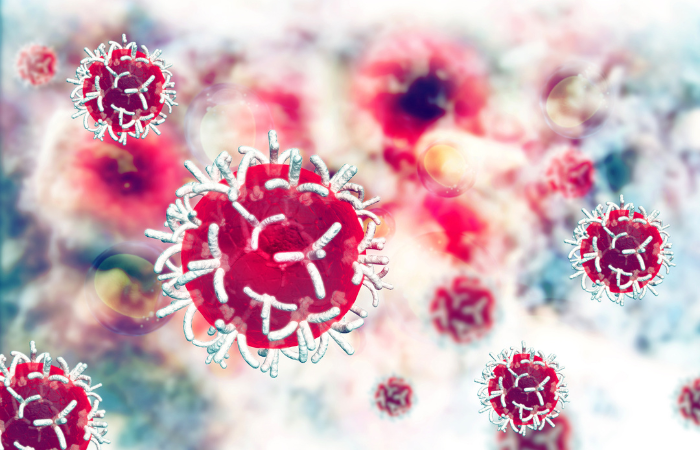Feb 2024: The Food and Drug Administration has sped up the approval process for two drugs, enfortumab vedotin-ejfv (Padcev, Astellas Pharma) and pembrolizumab (Keytruda, Merck). These drugs are meant to treat people with locally advanced or metastatic urothelial carcinoma who can not get cisplatin-containing chemotherapy.
Efficacy was assessed in the multi-cohort (dose escalation cohort, Cohort A, Cohort K) research EV-103/KEYNOTE-869 (NCT03288545). Patients were treated with enfortumab vedotin-ejfv + pembrolizumab in the dose escalation cohort and Cohort A, whereas in Cohort K, patients were randomised to either the combination or enfortumab vedotin-ejfv alone. Patients were ineligible for chemotherapy that contained cisplatin because they had not previously undergone systemic treatment for locally progressed or metastatic illness. 121 individuals in total received pembrolizumab together with enfortumab vedotin-ejfv.
Objective response rate (ORR) and duration of response (DoR), which were determined by blinded independent central review using RECIST v1.1, were the key efficacy outcome measures. In 121 patients, the confirmed ORR was 68% (95% CI: 59, 76), with 12% of patients achieving full responses. The dosage escalation cohort and Cohort A had a median DoR of 22 months (interquartile range: 1+ to 46+), while Cohort K did not reach the median DoR (interquartile range: 1 to 24+).
Increased glucose, increased aspartate aminotransferase, rash, decreased haemoglobin, increased creatinine, peripheral neuropathy, decreased lymphocytes, fatigue, increased alanine aminotransferase, decreased sodium, increased lipase, decreased albumin, alopecia, decreased phosphate, decreased weight, diarrhoea, pruritus, decreased appetite, nausea, dysgeusia, decreased potassium, decreased sodium were the most frequent adverse reactions (>20%), along with
When combined with pembrolizumab, the recommended dose of enfortumab vedotin-ejfv is 1.25 mg/kg (up to 125 mg for patients under 100 kg), given intravenously over 30 minutes on Days 1 and 8 of a 21-day cycle until disease progression or intolerable toxicity. After receiving enfortumab vedotin on the same day, the dosage of pembrolizumab is advised to be 200 mg every three weeks or 400 mg every six weeks until the disease progresses, there is intolerable toxicity, or up to 24 months have passed.
View full prescribing information for Padcev and Keytruda.


